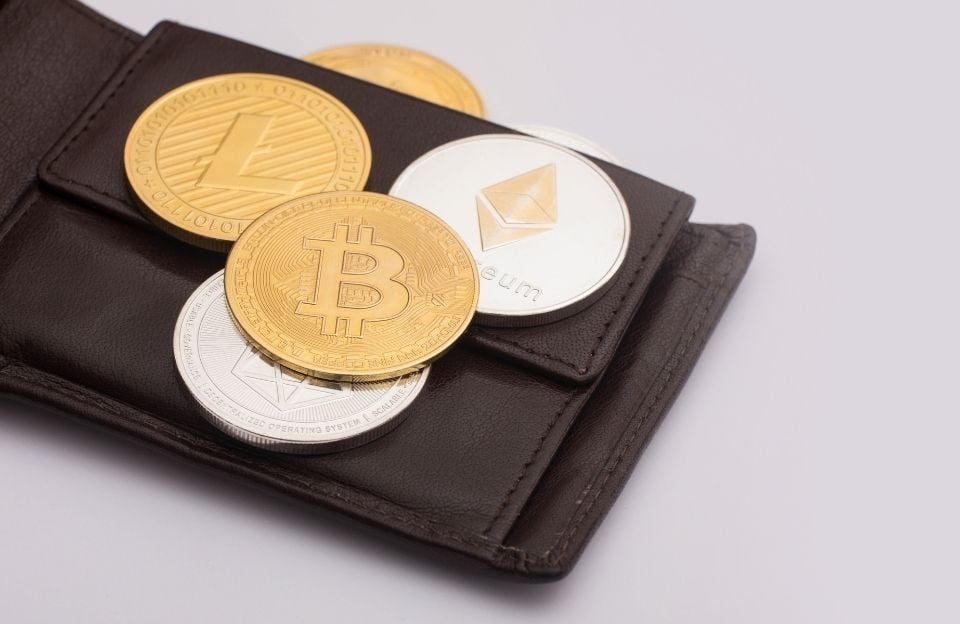Canada Crypto Friendly Score
- Home
- /
- Canada & Crypto
How Canada & Crypto coexist
Cryptocurrency has been one of the fastest-growing industries over the last decade. Ever since the first cryptocurrency blockchain – Bitcoin – was launched in 2009, distributed ledger technology has been among the hot topics of the latest fintech discussions among those who trade crypto as well as the Securities and Exchange Commission in the USA.
Apart from being a growing innovative tech industry, cryptocurrency has also gained massive popularity as an investment option. Many countries in the world, especially those in the North American region, have seen a shift in the interests of retail investors in cryptocurrencies, as well as the Securities and Exchange Commission (SEC) and the Canada Revenue Agency (CRA).
According to a poll by KPMG, 24% of the 1,000 Canadian respondents taking the survey have invested in cryptocurrencies and digital assets, including Bitcoin and Ethereum. 13% purchased them directly, while 11% have invested in crypto-asset funds and Bitcoin ETFs. Moreover, 21% of those who have not yet invested in this sector are planning to buy them directly. At the same time, another 21% are interested in purchasing crypto funds and Bitcoin ETFs.
However, since cryptocurrencies and blockchain are still novel technologies, most people are unaware of the ways they work. They do not understand the cryptocurrency regulations and tax implications on capital gains, etc. around it, making it even harder for them to get started.
In this article, we are going to cover everything that a Canadian citizen needs to know before deciding to buy or invest in crypto and digital currency.
Institutional Acceptance

Institutional acceptance plays the most vital role in the development and subsequent stability of any industry. It brings billions of dollars into the sector, increasing the total market capitalization and making the assets more valuable. As a result, the market becomes much safer and less volatile for both retail and corporate investors.
It also encourages the developers to improve the technology further, making it more scalable and sustainable. Ethereum is an excellent example in this regard. This blockchain network keeps evolving as more and more people join the ecosystem. The recent Ethereum London Hardfork is one of the many upgrades done in order to accommodate more individual and institutional users.
The confidence of retail investors in a budding technology also depends on the amount of institutional adoption taking place in the industry. Data from KPMG suggests that nearly one quarter (23%) of the residents in Canada said that they would feel more comfortable investing and trading crypto if the institutional interest for the digital currency and crypto-assets further expands. On top of that, more than half (54%) of them are waiting for institutions and corporations in Canada to “test the waters” first before they feel confident enough to dive in themselves.
In this way, institutional acceptance in the crypto industry benefits the entire ecosystem, including the blockchain networks, retail investors, and even other institutions interested in the asset class.
Kareem Sadek – Partner and Crypto Assets & Blockchain leader at KPMG in Canada, stated, “Retail investor interest in crypto assets started with early adopters years ago, and since then, we’ve seen a steady wave of institutional interest in the space – from pension funds and insurers to hedge funds and family offices – with almost one third telling us they have direct or indirect exposure to the asset class. Investors have told us they are interested in the crypto space because they see it as an innovative technology play with high potential upside.”
According to the survey of institutions and financial service companies currently operating in Canada, about 32% of the respondent institutions are directly or indirectly have invested in cryptocurrencies. 50% of these institutions are exposed to crypto investments via close-ended trusts, exchange-traded funds (ETFs), or other regulated instruments.
While 36% of them hold crypto-related public equities, about 29% have directly invested in the sector and personally own crypto assets. Another 29% have laid out their money as limited venture capital or hedge fund partnerships. Almost 57% of these corporate investors entered the crypto industry between 2020 and 2021. According to the experts, this momentum will only grow in the coming years.
However, you must note that despite such a large percentage of institutions involved in crypto tokens and digital currencies, the portion of their overall portfolio allocated to this asset class is quite small.
“While institutional investors have told us they are interested in the crypto space because they see it as an innovative technology play with high potential upside, financial services companies are also interested in crypto assets, but they’re a bit more cautious because of the lack of regulatory clarity in Canada,” said Kareem Sadek.
Almost three-quarters (71%) of the total institutions invested than 2% of their total investments portfolio in cryptocurrencies. Chris Farkas – national financial services consulting leader for asset management at KPMG in Canada – stated, “Investors are increasingly adding exposure to crypto assets to further diversify their portfolios given the reduced ability of government bonds to act as portfolio shock absorbers. While this is a newer and potentially promising space for institutional investors, they’re clearly taking a prudent approach.”
Exchanges and Wallets Availability
Cryptocurrency trading platforms and wallets act as a bridge between the traditional financial system of banks and the decentralized economy of blockchain technology. Exchanges allow crypto users to buy and sell their crypto assets against fiat currencies, while crypto wallets let you hold those assets safely.
Since both platforms directly deal with your funds, it is necessary that you use only those crypto exchanges and wallet services that are reliable and enjoy a good reputation. Unfortunately, there have been incidents in the past when the entire crypto exchange got hacked, and users lost all their holdings. For example, the infamous Bitfinex hack resulted in users losing 119,756 Bitcoins worth about $3.5 billion (according to current prices). The Mt. Gox incident still haunts crypto traders even after a decade.
Luckily for crypto investors in Canada, a number of safe, centralized, and decentralized crypto exchange options are available. Following are some of our top picks.
Centralized Exchanges
These are the crypto trading platforms owned and controlled by a single centralized entity. They charge users specific trading fees for each transaction and have to fulfil Canadian security law requirements and registration requirements.
Centralized exchanges are the most popular options for trading cryptocurrencies in Canada. The country has over a few hundred different centralized exchanges, each with its own trading fee and listed crypto token options.
Crypto.com

Crypto.com is the best centralized crypto trading platform in Canada. It allows users to trade 100+ different cryptocurrencies, including Bitcoin, Ethereum, Shiba Inu, Cardano, Dogecoin, etc., at a very minimal fee. You can use different options, like credit/debit card, as a payment method to transfer funds from your bank account to your Crypto.com account and vice versa.
Binance

Binance is the ideal exchange for anyone who wants diversity in crypto investment options in Canada. The platform has over 1,000 cryptocurrencies listings. You can buy and sell those tokens against the Canadian Dollar (CAD). It also provides several trading tools for professional traders, such as limit orders. Moreover, its trading fee is the lowest (0.1%) in Canada. However, the exchange is not available to users in Ontario.
Bitbuy

BitBuy is a Canada-based crypto exchange and one of the largest by trading volume. It is more suited for newcomers to the crypto world. The interface is simple and easy to use. However, it allows Canadian users to purchase just 18 cryptocurrencies. The trading fees are around 0.2% per trade.
Coinsmart

CoinSmart is another Canada-based crypto exchange that is targeted toward beginners. Registered by OSC, this platform allows users to trade 15 different cryptocurrencies at the trading fees of only 0.2%. All of the listed tokens are big caps and considered safe options for investment.
Decentralized Exchanges
Decentralized cryptocurrency exchanges (DEXs) are not controlled by any centralized entity, but the users themselves are involved in the governance mechanism of the platform, voting for important decisions. They are built on blockchain ecosystems. Hence, DEX users enjoy extra security, fast transactions, and low trading fees.
Moreover, you can trade many more crypto tokens on these platforms as compared to centralized exchanges. Some DEXs in Canada, such as Uniswap and PancakeSwap, allows users to purchase and sell up to several thousand digital currencies.
Crypto Wallets
Choosing the right wallet for your crypto holdings can be a bit tricky. It depends on the crypto coins you own, total holdings, required security level, etc. These wallets come in two main categories, which are discussed next.
Web/Online Wallets
Web/online wallets are mostly free and often the easiest to use. These include centralized exchange wallets (Binance, BitBuy, etc.) and decentralized service providers (Trust Wallet, MetaMask, etc.). They are available as desktop sites, browser extensions, and cellphone applications. However, these wallets are the most vulnerable to online hacks and breaches as they are constantly connected to the internet.
Hard Wallets
Hard wallets basically provide you with cold storage to hold your cryptographic keys. They are always disconnected from the internet unless you plug them into your computer, providing you ultimate security against all online breaches.
However, if you lose the device or damage it physically, your holding may be lost forever. They are recommended to users who own vast amounts of crypto assets and plan to hold them for long periods. Trezor Model One, Ledger Nano X, Trezor Nano T and D’Cent are among the top hard wallets in Canada.
Canadian Regulations for Crypto exchanges
Compared to other countries in the world, Canada has been very proactive in dealing with the blockchain industry and the virtual currency sector. It was the first country to regulate AML laws for crypto service providers, recognizing them as money service businesses (MSB) under provincial security laws to protect the interests of the public.
In August 2017, Canadian Securities Administration (CSA) declared that existing securities laws would be applied to crypto-assets. The head of Canada’s Central Bank gave them the status of securities in January 2018.
The Canadian Government allows crypto holders to use their crypto holdings to purchase and transfer. It means you can make cryptocurrency transactions to pay for products and services in online and physical stores.
However, it is not recognized as a legal tender in Canada yet. As a result, no official bank oversees or controls the sector. Moreover, they are not equivalent to government-issued notes by the Canadian Bank and coins from the RCM (Royal Canada Mint).
Hence, you cannot use cryptocurrencies to pay taxes or make other government-related payments. On top of that, no federal or provincial insurance coverage is provided for cryptocurrency investment, as they are for saving accounts holding Canadian Dollars.
All cryptocurrencies are subject to tax implications by Canada Revenue Agency since 2013. These tax implications apply only to crypto transactions. It means that you don’t have to pay any taxes if you are simply holding cryptocurrency. However, any of the following activities can lead to a capital gain or even business tax liability:
- Selling crypto
- Gifting crypto
- Exchanging or swapping cryptocurrencies
- Converting from crypto tokens to Canadian Dollars
- Purchasing goods or services using cryptocurrency
Similarly, the income earned through crypto trading is subjected to income tax rules. All the profits and losses from trading crypto-assets must be reported in the taxpayer’s income. If the individual is engaged in the business of trading cryptocurrencies, they they have to report as being on account of income. However, if the individual is not involved in any such business, gains and losses are reported as being on account of capital gains. Again, the Canada Revenue Agency will track this.
As far as the business income is concerned, the CRA uses the following criteria to categorize crypto assets as business income:
- Trade volume – if a taxpayer trades more in a given year, business income tax rules apply
- Promotion of a product or service
- Commercial management behaviour
- Activities are carried on a business-like scale
The CRA considers crypto mining, trading exchanges, and ATMs as integral parts of the cryptocurrency business landscape.
Since cryptocurrency is treated just like any other asset, Canadians who own Bitcoin or any token with an aggregate cost base larger than $100,000 on a platform need to report their ownership on the T1135 – Foreign Income Verification Statement every year. Otherwise, the individual can be met with strict legal action.
DeFi
Decentralized finance (DeFi) is a booming sector in the blockchain industry, which acts as a cheaper, quicker, and transparent alternative to our traditional finance system that relies on banks.
To put it simply, DeFi provides users the same financial services as our current economic model, including lending, borrowing, and investing. However, in the DeFi space, users are not required to deal with third-party organizations, such as banks and brokerages, to authenticate and proceeds or transactions.
As far as security measures go, DeFi protocols are consistent with the requirements of anti-money laundering (AML) and know-your-customer (KYC) regulations. It enables the participating institutions and DeFi platforms to ensure that all network participants are verified, reducing the possibility of financial crimes and illicit activities.
Henry Elder – head of wealth management at Wave Financial – explains, “Smart contract blockchains, such as Ethereum, allow developers to build financial applications on top of them, which function autonomously and easily interface with each other.”
“The efficiencies of decentralized finance are driving new product innovations, such as lossless lotteries, self-repaying loans, automated market makers, yield farming, flash loans and decentralized governance, all of which continue to provide incentives for faster and better innovation,” he further elaborates.
Any resident in Canada can access DeFi for financial transactions following these steps:
1. Choose a Wallet
Just like our traditional financial system, where you need a bank account to hold your funds and carry out financial transactions, you will have to set up a crypto wallet to get started in the DeFi space.
As aforementioned, the choice of crypto wallet varies from user to user, depending on different factors. Hard wallets are the most secure, but they are not recommended for frequent use as the procedure is lengthy and can be complicated. However, you must always use a wallet compatible with the blockchain network of your choice.
2. Fund Your Wallet
The next step is to send crypto tokens to your wallet. Unfortunately, you cannot purchase any tokens directly through a crypto wallet using a government-issued currency. You first have to acquire a blockchain’s native crypto coin (ETH, BTC, ADA, etc.) or stablecoin (USDT, USDC, etc.) through a centralized exchange using Canadian Dollars. Next, send those crypto tokens to your wallet using a blockchain network. After that, you will be able to carry out different transactions in the DeFi space using those coins.
3. Connect Your Wallet to a DeFi Platform
The last step is to decide which part of the DeFi space you want to explore. You can stake, lend, borrow, earn interest, and trade your crypto tokens using different protocol services. Each platform has a dedicated website that you can visit on any browser. Open the site and connect your crypto wallet to it to facilitate electronic funds transfers.
Following are some of the most popular DeFi platforms in Canada, which you can visit anytime to get a taste of the DeFi world.
- AAVE
- y2Earn
- Compound
- Uniswap
- PancakeSwap
- Synthetix
Financial Services

The Royal Canadian Mint (RCM) was Canada’s first major financial institution to accept cryptocurrencies back in 2014. Since then, a number of financial service providers have stepped into this new sector, trying to stay competitive in the quickly developing fintech industry.
Over the last couple of years, several big financial services companies in Canada have started offering crypto-related services, such as ETFs, custody, compliance, clearing, offering wealth management advice, fund administration, etc. These firms include Purpose Investments, Mackenzie Investments, and CI Financial Corp.
Almost 39% of financial firm respondents taking the KPMG’s survey are offering some sort of crypto-related services. About 42% of these providers offer wealth management financial advice services. One-third of them (33%) provide custody, clearing, and settlement solutions. 22% issue ETFs and other regulated products. While 11% contribute to the space by offering liquidity to regulated products as a market maker.
The biggest reason pushing financial firms to offer crypto-based financial services to the general public is the positive and conducive Canadian regulatory environment. Canada was among the first few countries to sanction crypto ETFs. This regulatory step encouraged institutions to consider this newly emerged asset class.
Geoff Rush (KPMG in Canada’s National Industry Leader for Financial Services) suggests that more financial institutions and banks will direct their attention toward providing crypto-based financial services in 2022.
“Nearly seven in 10 financial services companies told us they are considering offering crypto-asset services, and 6 in 10 told us they are going from analyzing opportunities and developing crypto asset strategies to building crypto asset products and services and onboarding clients, so this is a notable change,” he said while referring to the survey.
Transparency
In the realm of transparency within the cryptocurrency sphere, a seamless collaboration between government institutions and crypto platforms is employed to safeguard the well-being of users, protect their financial resources, uphold privacy, and deter any unlawful undertakings.
Almost every cryptocurrency service provider, including exchanges and wallets, require users to authenticate their identity through different verification procedures. Similarly, all transactions made on a blockchain are easily traceable. Hence, despite features like user anonymity, developers are constantly making efforts to develop the blockchain and crypto space into a secure financial network.
Spending Crypto
Cryptocurrencies were created to replace conventional government-regulated currency. But there is no use for this innovative technology if crypto holders cannot buy things using it. A few years back, finding a practical use for cryptocurrencies in the real world was quite a challenge.
However, as the industry expands and continues to develop, businesses realize the potential of this technology. Right now, there are a number of ways cryptocurrency users in Canada can spend their virtual currencies to purchase different items.
Crypto Cards

Crypto cards are some of the most convenient and straightforward ways to spend your crypto holdings. There are two major types: prepaid cards and debit cards. A prepaid card functions exactly how it sounds. You have to load crypto credit into it before you can use it. After it is out of credit, you can reload it. Debit crypto cards eliminate the “loading step.” They are directly linked to your crypto wallet and can be used on the point-of-sale devices without any hassle.
Bill Payment
Some services, like Bylls, allow users to pay bills using Bitcoin. The entire procedure is very straightforward, and Bylls have listed more than 9,000 corporate billers on their website.
Gift Cards
Several startups in Canada are now offering gift card services for crypto users. They cover a wide range of vouchers, including gaming, entertainment, groceries, travel, and more. One of the leading gift card providers in Canada is Bitrefill. It accepts Bitcoin, Ethereum, Tether, Dogecoin, Dash, and Litecoin.
Charity
If you want to play your role in improving the world through this technology, there are various charities accepting cryptocurrencies. You can find a list of different charities in Canada by visiting Crypto Giving. All of them accept donations via Bitcoin and Ethereum.
Banks’ Activity in Crypto

While blockchain ecosystems are initially designed to foster a decentralized financial system, devoid of central banks, the active involvement of banks in the crypto space can prove beneficial for the industry in the long term. This collaboration serves as a catalyst for promoting informed decision-making and cautious investment practices among individuals, gradually fortifying the bedrock of the cryptocurrency industry.
Overall, the big Canadian banks are still not very welcoming to this new fintech sector. Most are sitting on the side-lines and closely watching the activities within the space. In his interview with Financial Post, John Mackerey – senior Vice-President of North American financial institutions at DBRS Morningstar – said, “I don’t think there’s any benefit from becoming an early adopter. It’s not that large a piece of the investment space, so I don’t think it would have consequences.”
A recent report published by DBRS states, “We do not believe the six large Canadian banks will accumulate any significant holdings in this asset class.” The report also mentions that the primary reason for such a lackadaisical response by commercial banks and other financial institutions is the absence of security legislation and cryptocurrencies not being considered a legal tender.
Conclusion
The cryptocurrency space is expanding exponentially. Soon, we will witness its effects in several industries, including entertainment, data management, and other areas. Experts already feel confident that blockchain technology will be a fundamental component of Web 3.0.
Considering everything, one thing is certain: this technology is not going anywhere anytime soon. New crypto-based start-ups are emerging throughout the country almost everyday.
Moreover, even established multinational companies, like Spotify, Square, and Stripe, are working to integrate this technology into their existing business models. Similarly, to keep up with the fast-paced development, the Canadian Government is considering formulating a regulatory framework around newer extensions of this industry. These include non-fungible tokens (NFTs), DApps, Initial Coin Offerings (ICOs), etc.
Our extensive analysis of the Canadian Crypto market doesn’t stop here. You can read about our list of Crypto Guides for Canadians for additional information.
You are not from Canada? Visit our Home Page to find more content related to your Country.
Skrumble.com provides all its content for informational purposes only, and this should not be taken as financial advice to buy, trade, or sell any investment instruments or products, including but not limited to cryptocurrencies, or use any specific exchange. Please do not use this website as investment advice, financial advice, or legal advice, and each individual’s needs may vary from that of the author. Investing in financial instruments, including cryptocurrencies, carries a high risk and is not suitable for all investors. It is possible to lose the entire initial investment, so do not invest what you cannot afford to lose. We strongly advise conducting your own research before making any investment decisions. This post includes affiliate links with our partners who may compensate us.
To view our privacy policy read here.




